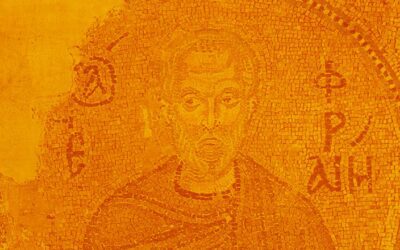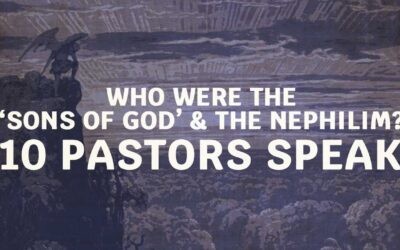Nemesius of Emesa, a notable Christian philosopher and Bishop of Emesa during the 4th century AD, left a lasting impact on Christian thought with his treatise De natura hominis (“On Human Nature”).
It is a compilation of a comprehensive system of anthropology that is deeply rooted in Christian philosophy and was influential in later Greek, Arabic, and Christian intellectual thought.
Nemesius Unravels Genesis 6:1-4

When examining Nemesius’s writings, we discover his unique interpretation of the enigmatic passage from Genesis 6:1-4. According to Nemesius, only certain angels, rather than all incorporeal beings, deviated from their celestial nature and succumbed to earthly desires.
These fallen angels, driven by their inclination towards worldly matters, engaged in intermarriage with humans, thus leading to the intriguing phenomenon mentioned in the sacred text.
“Of the incorporeal beings, only angels fell away, and not all of them, but some only, that inclined to things below and set their desire on things of earth, withdrawing themselves from their relations with things above, even from God.”
His reference to the ancient tale is brief and without much detail. Just enough information is included so that we can determine that he was referencing the angelic fall of Genesis 6, as his readers were well aware which angels ‘set their desire on things of earth’.
Nemesius referred to the story as historical without indicating much controversy. Even if other church leaders were adopting a more human identity of the ‘sons of God’ in Genesis 6 by this time, Nemesius is still referring to the story as was largely understood by earlier church fathers.
A couple centuries earlier, Tertullian used similar terminology when he said “One proposition I lay down: that those angels, the deserters from God, the lovers of women…”.
Athenagoras as well said “…the angels… some outraged both the constitution of their nature and the government entrusted to them… these fell into impure love of virgins, and were subjugated by the flesh, and he became negligent and wicked in the management of the things entrusted to him.”
Seeking the Truth: Ancient and Modern Scholarship
The interpretation of Genesis 6:1-4, including the involvement of supernatural beings and intermarriages, remains an intriguing and complex topic. Nemesius of Emesa, through his writings, provides valuable insights into how it was understood in his time.
It is essential to approach the topic with discernment, seeking reliable sources of information and research, especially with the abundance of disinformation and sensationalized content available online.
Chasing the Giants strives to curate a comprehensive repository of searchable data, offering insights into the “sons of God” and the nephilim from ancient sources.






